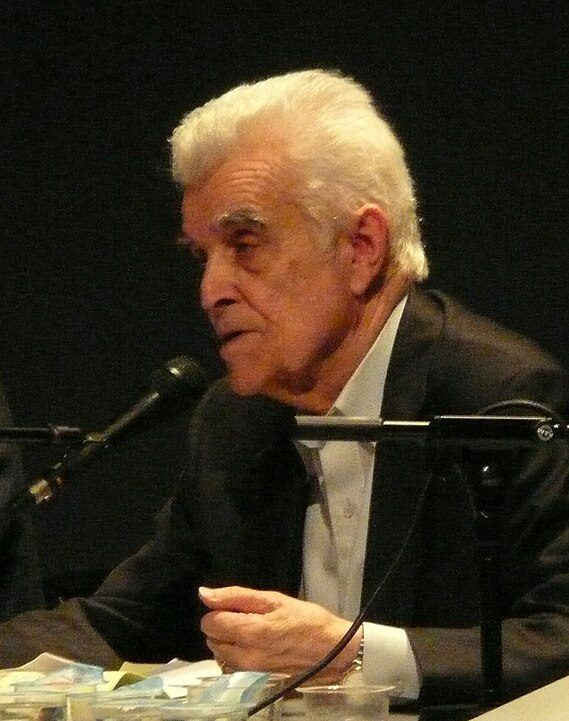The brutal attacks by Hamas on Israeli civilians, including teenagers at a music festival and babies in their cribs, were shocking. Also shocking was the cheering of many Americans and Europeans–not just Arab immigrants but also college professors, teenagers, and the non-Jewish progressive left–to those attacks.
I acknowledge the distinction between opposition to the Israeli government and hatred of Jews, but what emerged in the aftermath of the October 7 massacres, rapes, and kidnappings, was old-style hatred of Jews. The babies Hamas beheaded had nothing to do with the Israeli government, but I heard that an American defender of Hamas say that the babies too were “occupiers.” In America, Jews who had nothing to do with the settlement policies of Tel Aviv–an elderly Jewish man, Jewish college students–were assaulted by anti-semitic mobs. Protesters around the world chanted “gas the Jews” and called for their eradication “from the river to the sea.”
What is the mindset of people who would commit such violence against other human beings, and what is the mindset of people who cheer them on?
I came across a powerful article in The American Mind by Gabriel Noah Brahm entitled Radical Roots of the DEATH Cult. He draws on the profound work of the French scholar René Girard (a Catholic Christian) to account for the psychology of political violence, especially as we are seeing it today on the Left.
He begins with this (my emphasis throughout):
Radical ideology takes many forms: Marxist, Islamist, a combination of the two (termed the red-green alliance), anarchist, what was once called Third Worldist and is now rebranded “postcolonial theory,” intersectional and anti-TERF feminism, and so on. What too many variants share is a visceral attraction to fantasies of transformative, retributive violence.
Violence that transforms. Violence that is retribution. Payback. Punishment. I would add that because violent radicals tend to be collectivist, identifying human beings in terms of what group they belong to, the payback and punishment is directed to any member of the group they hate, without any consideration of individual responsibility, since they do not see people primarily as individuals.
Then Brahm applies Girard:
In roughly psychoanalytic terms, they gravitate toward alibis for sadism, humiliation, and even outright murder of the hated, fantasized object or “other” standing in the way of their “progress.” They seek a “permission structure” to vent their spleen. According to René Girard, these befuddled victimizers of innocents—ironically enough, most convinced of their own moral purity in the very commission of their crime—hunger for sacrificial scapegoats, designated essentially arbitrarily as responsible for the ills of the world, and bond together as a solidaristic community of the (self-)righteous in the act of executing them together. And if they can’t actually be there for the event itself, they applaud as spectators from a distance.
The acts of violence become “a kind of human sacrifice, the ritualistic if frenzied enjoyment of cruelty in the service of supposed transcendent imperatives.”
Brahm notes that the violence and the love of violence we are seeing now is the result of long preparation. One factor has been our practices of education. “While university administrators have been wringing their hands about ‘micro-aggressions,'” he writes, “it turns out the English department and Gender Studies program have been softening the ground for their students to exult in the face of macro-aggressive butchery.” Thus, “the pedagogy of hate—first of all for one’s own country, Western civilization as a whole, and by extension the West’s oldest progenitors and newest defenders—has been going on, in some form or other, for decades.”
“The West’s oldest progenitors” are the Jews. Brahm quotes Seth Barron who says that “Israel [has become] a synecdoche” for what the left opposes. A synecdoche is a figure of speech–or thought– in which the part stands for the whole. So Jews can stand for white privilege, racism, colonialism, oppression, etc., etc.
I would add that another psychological phenomenon relevant to this issue is projection, whereby a person ascribes to another person negative qualities that he has. Pro-Hamas protesters are accusing Jews of genocide, when they themselves are fantasizing about bringing back the Nazi genocide of the Jews. They are accusing the Jews of racism, when they themselves are bringing back “Jew” as a racial category. They accuse Jews of hatred, when they themselves are hating Jews. They condemn the Jews for their oppressive power, when they themselves want power to oppress the Jews.
See my book Modern Fascism: Liquidating the Judeo-Christian Worldview for how and why the Nazis likewise turned the Jews into a synecdoche–and a scapegoat–for everything they opposed, namely, the Bible and the civilization it created.
Girard said that Christianity, along with the Bible in general including the Old Testament, puts an end to the scapegoat/sacrifice syndrome by offering a sacrificial victim who is proclaimed to be innocent. This discloses the horror of that syndrome and causes us to sympathize with the victim rather than with the sacrificing crowd, thus undoing the love of violence.
But we should expect that without Christ, new sacrificial victims will emerge.
Photo: René Girard by Vicq – Own work, Public Domain, https://commons.wikimedia.org/w/index.php?curid=3231001











